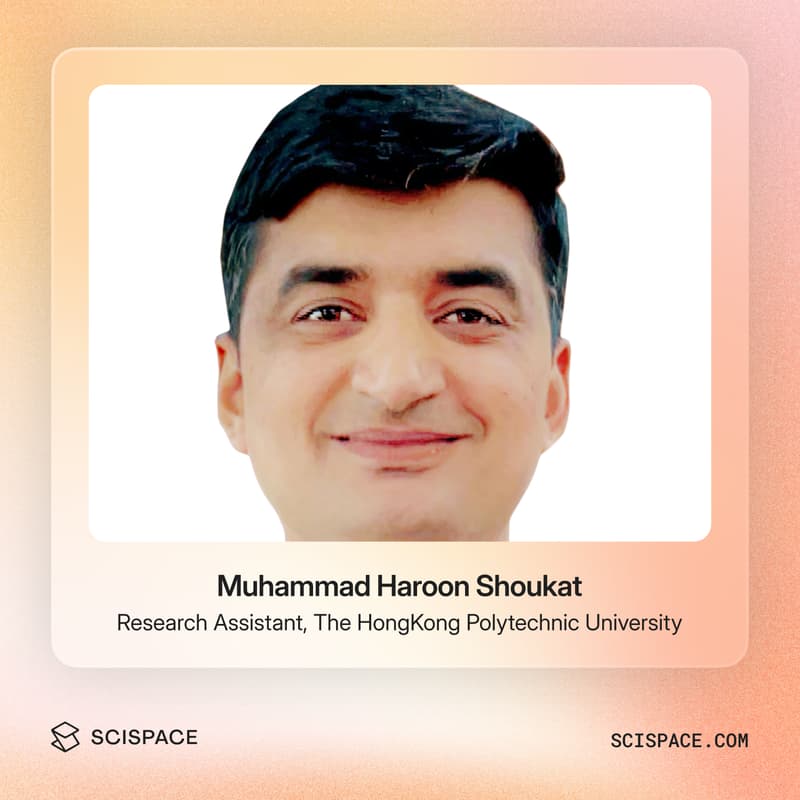

Researcher’s Guide: From Idea to First Draft with SciSpace Research Agent
Join Muhammad Haroon Shoukat for a hands-on session where you’ll discover how the SciSpace Research Agent can streamline your entire academic workflow — from the moment you have a research idea to producing a polished first draft.
In this practical webinar, we’ll cover how to:
Discover and refine research topics with AI-powered topic exploration
Automate systematic literature reviews and generate forest plots, evidence matrices, and structured summaries
Extract and analyze research data from PDFs to speed up synthesis
Draft fully formatted manuscripts in Word or LaTeX with automatic citations
Create visual insights dashboards to communicate your findings to teams and stakeholders
If you’re a Master’s or PhD student, early-career researcher, or academic preparing for publication, this session will help you save time, work smarter, and focus on impactful research.
Participants who attend the full session will receive a Certificate of Participation from SciSpace.
About the Speaker:
Muhammad Haroon Shoukat
Research Scholar, The Hong Kong Polytechnic University
Muhammad Haroon Shoukat is a distinguished research scholar and academic editor with over 40+ publications in Scopus-indexed journals. Recipient of the Emerald Literati Award 2024 for Outstanding Paper, he specializes in leveraging AI tools to simplify and enhance academic writing for high-impact publishing.
With extensive cross-domain research experience and a passion for ethical AI adoption, Haroon regularly delivers practical workshops that empower researchers to navigate the entire academic research journey from formulating research questions to drafting and refining manuscripts.
As an invited speaker for SciSpace, he will guide participants through hands-on strategies for using AI-powered tools to streamline literature reviews, decode complex texts, and write with clarity, precision, and confidence. Haroon is committed to bridging academia and technology, helping researchers publish more efficiently and ethically in today’s rapidly evolving scholarly landscape.